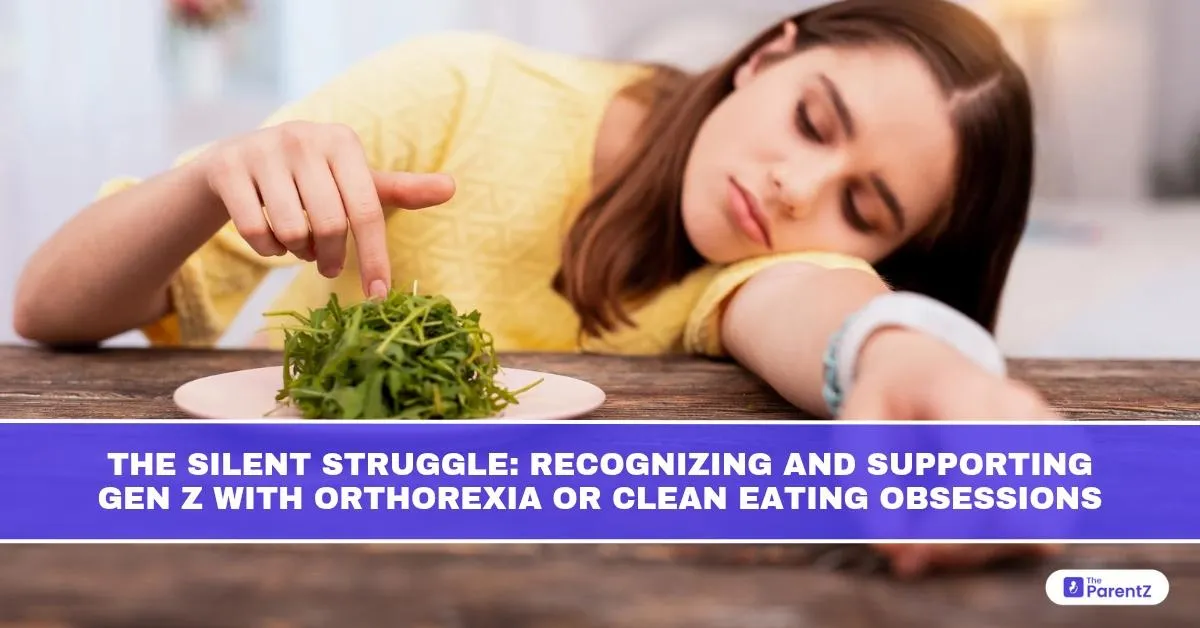For many parents, seeing their child make healthier food choices is a relief but what happens when your teen’s dedication to “clean” or “pure” eating becomes an obsession? In today’s social media-driven culture, where wellness influencers and #cleaneating trends flood feeds, young people are increasingly vulnerable to orthorexia nervosa: an eating disorder characterized by an unhealthy fixation on eating only foods perceived as “healthy.”
Unlike anorexia, which focuses on quantity or weight loss, orthorexia is about quality: avoiding foods deemed impure or unhealthy to an extreme degree. Although not yet officially recognized in the DSM-5 as a separate diagnosis, orthorexia can lead to serious physical and emotional harm.
Why Gen Z is at Greater Risk
Gen Z is the first generation raised entirely in the era of wellness influencers, viral diet trends, and constant exposure to curated images of “perfect” lifestyles. This unique cultural landscape increases their risk in several ways:
- Algorithm-driven content: Social media platforms push diet and fitness posts to users who engage with them, creating a feedback loop of increasingly extreme clean-eating content.
- Black-and-white thinking: Adolescents often see things as good or bad, right or wrong. This mindset makes them more susceptible to rigid food rules.
- Desire for control: Many teens turn to controlling food when they feel anxious or overwhelmed by academic pressures, social comparisons, or global uncertainty.
Early Signs Parents Should Watch For
Spotting orthorexia early can prevent long-term harm. Look out for:
- Preoccupation with food purity or ingredients, often spending hours researching or planning meals.
- Fear or guilt about eating anything considered “unhealthy” — even in moderation.
- Avoiding meals prepared by others or refusing to eat at restaurants due to fear of “unsafe” ingredients.
- Noticeable restriction of food groups (e.g., no carbs, no fats) without medical reason.
- Declining physical health, like fatigue, nutrient deficiencies, or weight changes, despite “healthy” eating.
- Withdrawal from social events involving food or anxiety around them.
Health Risks of Orthorexia
While it may seem like a commitment to health, orthorexia can cause serious physical and mental consequences. Nutritional deficiencies from overly restrictive diets can affect growth, hormonal balance, immunity, and even heart health. Psychologically, chronic anxiety about food can lead to social isolation, depression, or co-occurring eating disorders like anorexia or bulimia.
Some teens also engage in excessive exercise to “purify” their bodies, compounding health risks.
Understanding the Root Causes
Orthorexia doesn’t develop in a vacuum. It’s often fueled by a mix of:
- Social media pressure from influencers or celebrities who glamorize restrictive diets.
- Underlying anxiety or perfectionism, where control over food becomes a coping mechanism.
- Misinformation about food or health trends that exaggerate risks of certain ingredients.
- Family or cultural beliefs emphasizing purity or moral value tied to eating habits.
Understanding these factors can help you approach your child with empathy rather than blame.
How to Support Your Child with Compassion
Supporting a child struggling with orthorexia requires patience, empathy, and often professional guidance. Here’s what you can do:
1. Start open, nonjudgmental conversations
Ask your child how they feel about food and their eating habits without criticism. Use open-ended questions like, “What makes you feel worried about certain foods?” instead of “Why are you being so picky?”
2. Avoid praising extreme “health” behaviors
Complimenting weight loss or rigid food discipline can reinforce harmful patterns, even if well-intentioned.
3. Expose them to balanced messages
Share resources from registered dietitians, or model a positive relationship with food by enjoying a variety of meals without guilt.
4. Reintroduce joyful food experiences
Cook and eat together, making meals social and enjoyable rather than stressful.
5. Know when to seek help
If your child shows signs of malnutrition, avoids entire food groups, becomes socially withdrawn, or has intense anxiety around food, consult a pediatrician, dietitian, or therapist specializing in eating disorders.
Working with Professionals
Treatment may involve:
- Nutritional counseling to normalize eating patterns and address deficiencies.
- Cognitive-behavioral therapy (CBT) to challenge rigid beliefs about food and reduce anxiety.
- Family-based therapy to help everyone in the home support recovery in a consistent, compassionate way.
A Word on Social Media
One of the biggest challenges in today’s environment is the constant exposure to extreme diet trends online. Help your child curate their feed by:
- Unfollowing accounts promoting restrictive eating.
- Encouraging positive, science-based nutrition accounts.
- Teaching media literacy so they question what they see rather than accept it at face value.
Conclusion
Orthorexia is a silent struggle that often goes unnoticed because it masquerades as dedication to health. But for many Gen Z kids, the line between healthy eating and harmful obsession blurs quickly in a culture obsessed with “clean” living.
As a parent, you play a vital role in spotting the signs early, offering nonjudgmental support, and seeking professional help when needed. By fostering a balanced, joyful approach to food, you can help your child build lifelong habits that nourish both body and mind and break free from the rigid rules of diet culture.





Be the first one to comment on this story.